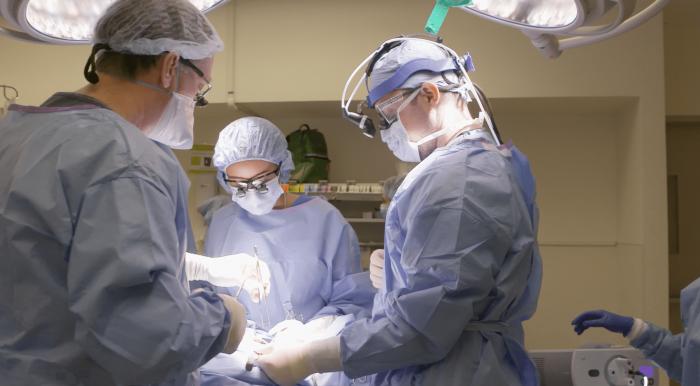Endocrine Surgery

Endocrine surgery is a specialized field of surgery that focuses on treating diseases of the endocrine glands. These glands secrete hormones directly into the bloodstream and have various functions in the body. The primary glands targeted in endocrine surgery include the thyroid gland, parathyroid glands, adrenal glands, and parts of the pancreas. Sometimes, endocrine surgery can also involve parts of the endocrine system that are related to the gastrointestinal tract and the neuroendocrine tumors of the pancreas or gastrointestinal tract. Here's a brief overview of the key areas:
Thyroid Gland
The thyroid gland is located in the neck and produces hormones that regulate metabolism, energy generation, and the body’s sensitivity to other hormones. Surgery may be required for conditions such as thyroid cancer, goiters, or hyperthyroidism. Procedures can range from partial removal (lobectomy) to complete removal (thyroidectomy) of the thyroid.
Parathyroid Glands
These are small glands located near or attached to the back side of the thyroid gland and regulate calcium levels in the body. Surgery, typically called parathyroidectomy, is often performed to remove one or more of the parathyroid glands that are overproducing parathyroid hormone (PTH), leading to hyperparathyroidism.
Adrenal Glands
Located above each kidney, the adrenal glands produce a variety of hormones including adrenaline, aldosterone, and cortisol. Surgery may be necessary for tumors (benign or malignant) or other disorders affecting hormone production, such as Cushing's syndrome or Conn's syndrome. Adrenalectomy is the surgical removal of one or both adrenal glands.
Pancreas
While primarily involved in digestion and insulin production, parts of the pancreas can develop neuroendocrine tumors that may produce excess hormones. Surgery can involve the removal of these tumors or, in more extensive disease, parts of the pancreas itself.
Surgical Approaches
- Open Surgery: Traditional approach with larger incisions.
- Minimally Invasive Surgery: Includes laparoscopic and robot-assisted surgery, offering advantages such as smaller incisions, less pain, and quicker recovery times.
Risks and Considerations
Endocrine surgery, like all surgeries, carries risks such as infection, bleeding, and complications related to anesthesia. Specific to endocrine surgery, there's also the risk of affecting hormone levels, necessitating lifelong hormone replacement therapy in some cases. The risk of damage to nearby structures, such as the recurrent laryngeal nerve during thyroid surgery, which can affect voice, is also a consideration.
Outcome and Follow-up
The success of endocrine surgery is high for many conditions, especially when performed by surgeons specialized in this field. Follow-up care is crucial to monitor hormone levels and adjust medications as needed. For cancerous conditions, ongoing surveillance for recurrence is also necessary.
Given the complex nature of endocrine diseases and the potential impact on the body's hormonal balance, treatment decisions often involve a multidisciplinary team, including endocrinologists, surgeons, radiologists, and pathologists, to ensure comprehensive care.
